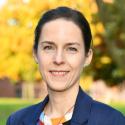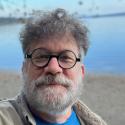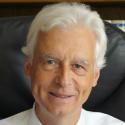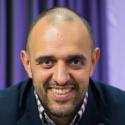2026 Academic Network
- Image
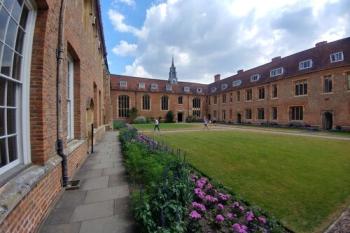
As Christian academics, we often experience isolation because of our own introverted and reclusive personalities. At the same time, because of the far-reaching influence of the classroom and higher education in shaping leaders and the next generation, every Christian scholar possesses an outsized potential for multi-generational impact. Our calling is to bring glory to Christ in the academic setting where we serve. This is why, as followers of Christ in the academy, we must be intentional about connecting with other like-minded colleagues.
The primary purpose of the ELF Academic Network is to gather together Christian scholars throughout Europe for equipping, uniting, resourcing, prayer, and accountability. At the 2025 Network, you will be blessed by outstanding presenters. Each one is a recognised scholar who, in their own academic work, is living and modelling what they teach. You will have opportunities to ask questions, discuss issues with your colleagues, and reflect on how these principles should change the way you think, live, and teach. Prior preparation will be set for all applicants.
What Network Participants Are Saying
- "As a medical doctor, an assistant professor, a PhD student, and a researcher, a main part of my ministry is to be a witness for Christ in academia. Words cannot fully convey what the ELF and its Academic Network have meant to me. I am now a lot better equipped to serve both Christians and non-Christians. I cannot fully imagine how the consequences of this will ripple outward for the glory of God."
- Hristian Staykov, Medical Doctor and Assistant Professor of Pharmacology, Bulgaria - "At the Forum, I had the chance to hear about principles of ministry in the modern world, meet new friends, and take a break from the war currently happening in Ukraine. This Forum was a source of inspiration and motivation for me and my ministry. I will use the resources and experiences to share the Gospel and bring more people to Jesus!" - Ruslan Khmyz, Seminary President, Ukraine
- "Being at the Forum is very encouraging to me because I have the opportunity to get to know leaders from other organisations who share the same burdens and concerns I do. I am learning new ways to negotiate my faith while serving my Bible school, the church, and the community of faith I belong to back home."
- Marius Ban, Lecturer, Romania
Applicants should be teaching or leading in a university, seminary, or other post-secondary educational institution or graduate students who hope to serve Christ in the academy. This Network will help academicians from a wide spectrum of disciplines to think about their discipline from a Christian worldview, attain excellence in teaching and research, share Christ with others, and maintain spiritual fervor.
Network Leadership
Network Speakers
Sarah Cardaun is a scholar from Germany with a broad range of research interests in political science, public administration and public policy with a focus on security and resilience. She has taught various subjects at universities in the UK, Brazil and Germany. Since 2019, Sarah has been… Read more
Charlie Catlett is a senior computer scientist at Argonne National Laboratory and The University of Chicago who has focused his research for 40 years in the development of the Internet and WorldWideWeb, computer security, and high-performance computing, holding scientific leadership positions at… Read more
John Dickson’s story is eclectic. Starting out as a professional singer-songwriter, he now works as an author, speaker, historian, and media presenter. He was the Founding Director of the Centre for Public Christianity (2007-17). He has published over 20 books, two of which became television… Read more
Per Ewert is the director of The Clapham Institute, Sweden’s leading Christian think tank and research institute. His PhD describes the political process which shaped Sweden into the world's arguably most secular-individualistic nation. Per is the author of several books on the Bible,… Read more
Peter Imming received degrees in pharmacy and chemistry and a PhD and venia legendi in pharmaceutical chemistry from a German university. He has been involved in drug chemistry teaching and research in Germany, the UK, China, Ethiopia and other countries. Until retirement in 2025, he was head of… Read more
Dirk Jongkind is the Academic Vice Principal of Tyndale House, Cambridge, and an Affiliated Lecturer at Cambridge University. His main scholarly interest is the text and language of the Greek New Testament. He is also the editor of the Tyndale House Greek New Testament… Read more
David Sandifer was born and raised in France, of American parents. He holds a Ph.D. in history, from the University of Cambridge (2014). He spent 20 years in pastoral ministry in the U.S. and Australia, and also worked for a Christian public advocacy organisation in Australia, where he co-… Read more
Mihail Stefanov is the assistant pastor at Crossroad’s Church Sofia (crossroadchurch.bg) and the founder of Culture and People (cultureandpeople.eu) – an international consulting firm helping global business leaders transform the culture of their organizations. He has a deep passion for… Read more
Network Programme
Sunday, 17 May
While one might expect that academics would be models of intellectual curiosity, that is often not the case: sadly, they can be guilty of becoming bench-workers and narrow specialists who value advancement in their field more than the love of truth. As followers of the One who is the truth, Christian academics should embody not only intellectual integrity but intellectual curiosity. How can we nurture this sort of attitude, not only with respect to our work, but in our lives as a whole? How do we avoid becoming so oriented to the pressing demands of our work that we lose our thirst for a greater knowledge and understanding? These are some of the questions which this seminar will explore, in the hope of stimulating us to an expanded and sanctified curiosity which hungers after wisdom.
Much is made of how Christianity shaped our world. Some of it is exaggerated or not well-founded. This lecture examines four clear ways specifically Jewish-Christian claims transformed the ancient and medieval worlds and have become assumed norms in the contemporary secular West.
Monday, 18 May
Most underlying values and core principles of scholarly research are good and praiseworthy. However, just like everything else, when detached from a relationship with God, many of them can become misguided and dysfunctional. In this joint interactive session with the Academic and Scientists Networks, we will take a critical yet hopeful look at spiritual challenges and opportunities that arise in our individual and collective pursuits of scientific knowledge. We will share experiences and insights on how Christians working in academia can cultivate an ethos rooted in trust and dependence on the Lord, rather than relying solely on their own abilities.
Even though the Bible is the most influential work in history, many have a strong, negative reaction to it. Most Christian academics have experienced derogatory remarks towards the Bible or evangelical Christianity, and to follow Christ, we need to handle such situations in a winsome way. This session will provide good reasons to appreciate the Bible as a true and reliable treasure for mind and soul, but also advice on how to communicate this appreciation with boldness and heart in the academy and popular debate.
Tuesday, 19 May
AI’s capabilities are advancing quickly. Designed for Christian academics, this practical session explores discerning, God-honoring uses of AI across many facets of scholarship—literature review, analysis, writing, and everyday tasks (e.g., notes, summaries). We’ll highlight best practices and prompts, avoiding common pitfalls (hallucinations, bias, privacy), and ways to guide students in their use of AI. We will provide an update on the latest advances in AI, as well as provide clear strategies for AI use that uphold academic integrity, truth-telling, and care for others while making wise, fruitful use of AI.
Christian academics need to be equipped to navigate a highly atheistic and intellectually rigorous environment by addressing common objections to their faith. By integrating apologetics with critical thinking, we can learn how to effectively dismantle defeater arguments that challenge Christian beliefs. This session will provide tools to confidently and thoughtfully defend the faith, enabling believers to engage with their sceptical peers while remaining rooted in both Scripture and sound reasoning. It's designed to strengthen the resolve of Christian academics who face opposition in their professional spheres.
Wednesday, 20 May
In many languages, including Koine Greek, a job is not a job but a calling. After the Lord established Himself in Peter Imming’s life, Dr. Imming found himself called to science and academia for some forty years, with 1 Cor 7:17 ("Let each person lead the life that the Lord has assigned to him, and to which God has called him") as the defining verse. This talk will focus on challenges one has and mistakes one makes in this particular calling and how Christians can decidedly find and faithfully maintain their role in this arena.
In Ephesians 5, Paul invites every follower of Jesus to 'live wisely'. This call and challenge is particularly pertinent for those dedicated and called to lives of study and scholarship through service in the academy. In this session, Per Ewert interviews Dirk Jongkind on his book, Growing in Understanding: Devotions for Christian Academics.

